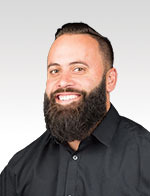You are here
Restorative Practices
Why Restorative Practices?
The Restorative Practices model that Doug Fisher, Nancy Frey, and Dominique Smith have created provides a proactive approach to school climate, discipline, and student relationships. Their work also discusses the importance of equity and the role equity plays in every approach in a school setting, from attendance to engagement to discipline.
What You’ll Learn
-
Understand the rationale for restorative practices. Discuss and analyze restorative practices as a proactive approach to school climate, discipline, and relationships.
-
Understand and develop the key strategies to building relationships with students. Understand the power of a relationship (teacher- student relationships .48 and teacher credibility 1.09) and how that can foster a safe environment.
-
Discuss the importance of equity and how equity plays a role in every approach in a school setting from attendance to engagement to discipline. Look at data to make proper decisions for growth.
-
Restorative practices are not limited to discipline. Introduce and define restorative grading and climate considerations.
Professional Learning Workshops
Your personalized Restorative Practices workshop with a certified consultant will support your individual school or district in understanding how restorative practices can be an alternative to punitive approaches to classroom management. These practices humanize the schooling experience and allow individuals who cause harm to make amends. Restorative practices rely on strong relationships as well as clear systems and procedures to ensure that harm is addressed. The impact is increased equity for BIPOC students as well as a reduction in exclusionary practices such as suspension and expulsion. But as importantly, students change their behavior as they come to understand the impact that they have on others.
Sample Workshops
Session 1: Establishing a Restorative Culture
For restorative practices to take hold, educators must examine the current structures and policies that exist and then revise those policies to create space for restorative work. In addition, schools must develop a culture hospitable for restoration. In this session, we focus on the logic of restorative practices and build a restorative philosophy. In addition, we explore a common aspect of a restorative culture: circles. Drawing in the knowledge gained by indigenous peoples, we explore the structures of circles and how they function. We conclude the session focused on what success will look like when restorative practices take hold.
Session 2: Creating Classrooms Based on Restorative Practices
Healthy, growth-producing relationships are foundational to restorative practices. These relationships, based on trust and support, provide students with assurances that their teachers have the best interests in heart. Like all relationships, there are expectations for interactions and respect. In this session, we focus on the aspects of restorative practices that are grounded in the classroom, including developing and maintain health relationships, establishing expectations and teaching for engagement, using affective statements, and engaging in restorative conversations.
Session 3: Respect and Repair
Restorative cultures ensure that members of the community are treated with respect. That respect extends many ways, from teachers to students, students to teachers, students with peers, and among leadership and non-instructional staff. When a strong foundation of respect is established, and serious issues arise, schools with strong restorative cultures work to repair the harm that has been done.
Leadership and Restorative Practices
To cultivate restorative practices in schools, leaders need to create and preserve the health of the school community. In this session leaders will examine current practices and policies that exist within the learning community. We will explore the principles, misconceptions, and components of restorative practices. In addition, leaders will be provided tools, strategies to implement, monitor, and support the philosophical shift to restorative practices.
Using Restorative Practices to Create Equitable Environments
For restorative practices to take hold, educators must examine the current structures and policies that exist and then revise those policies to create space for restorative work. In addition, schools must develop a culture hospitable for restoration. In this session, we focus on the inequities that are prevalent in our school and how we can use restorative practices to build an equitable environment for all. In addition, we explore a common aspect of a restorative culture: circles. Drawing in the knowledge gained by indigenous peoples, we explore the structures of circles and how they function. We conclude the session by looking at our classroom and the system to ensure restorative practices start the journey toward creating an equitable school community.
Restorative Practices Coaching Days
To move from ideas to implementation, teachers and leaders require just-in-time support. Much of this support can come from internal stakeholders within a school system. However, when implementing new practices that include philosophical shifts, educators tend to respond more effectively when they also have access to outsiders to the system who can provide confidential coaching. When these critical friends engage in coaching, educators can be venerable, question practices and ideas, grapple with their thinking, and try on strategies as part of a safe practice experience. There are a range of coaching options that have been successful in creating a restorative climate in schools and in ensuring shifts in classroom practice.
- Circle builders. Outside experts can facilitate or co-facilitate circles with teachers, counselors, or leaders in classrooms, allowing teachers to observe the process and receive feedback about their attempts to create structures that allow for restorative conversations. Participants can experience a variety of circle types and then debrief the responses from students.
- Conversation starters. For impromptu conversations and affective statements to take hold, educators often require additional support in trying on these practices. Outside experts can support individual teachers in integrating these practices in their classrooms and can engage small groups of teachers in role play experiences. As part of this coaching experience, educators develop scripts that they can use to support their implementation.
- Culture and climate. Every school has a feel and there are indicators that a school climate is restorative, or not. Outside experts visit schools with the lens on the climate and culture of the building, noticing aspects of policies and practices that ensure that restorative practices can take hold. This session includes an offer to review codes of conduct, student handbooks, and discipline policies. As part of this confidential coaching, the outsider provides next-steps recommendations for creating a more hospitable climate for restorative practices to succeed.
- High-stakes conferences. Typically reserved for school leaders and counselors, outside experts can provide confidential coaching on the use of high-stakes conferences to repair harm. Participants in these coaching sessions provide situations and scenarios that they problem-solve, developing action steps and re-entry plans.
- Custom plans. The team provides customized coaching, based on needs, for schools that have attempted restorative practices but have room for additional growth in this area. We can provide needs assessments or respond to the issues raised by the team. As part of the customized coaching, outside experts provide confidential reviews of systems and make recommendations for next steps.
Meet the Thought Leaders

Douglas Fisher

Nancy Frey

Dominique Smith
Bring Restorative Practices to Your School or District